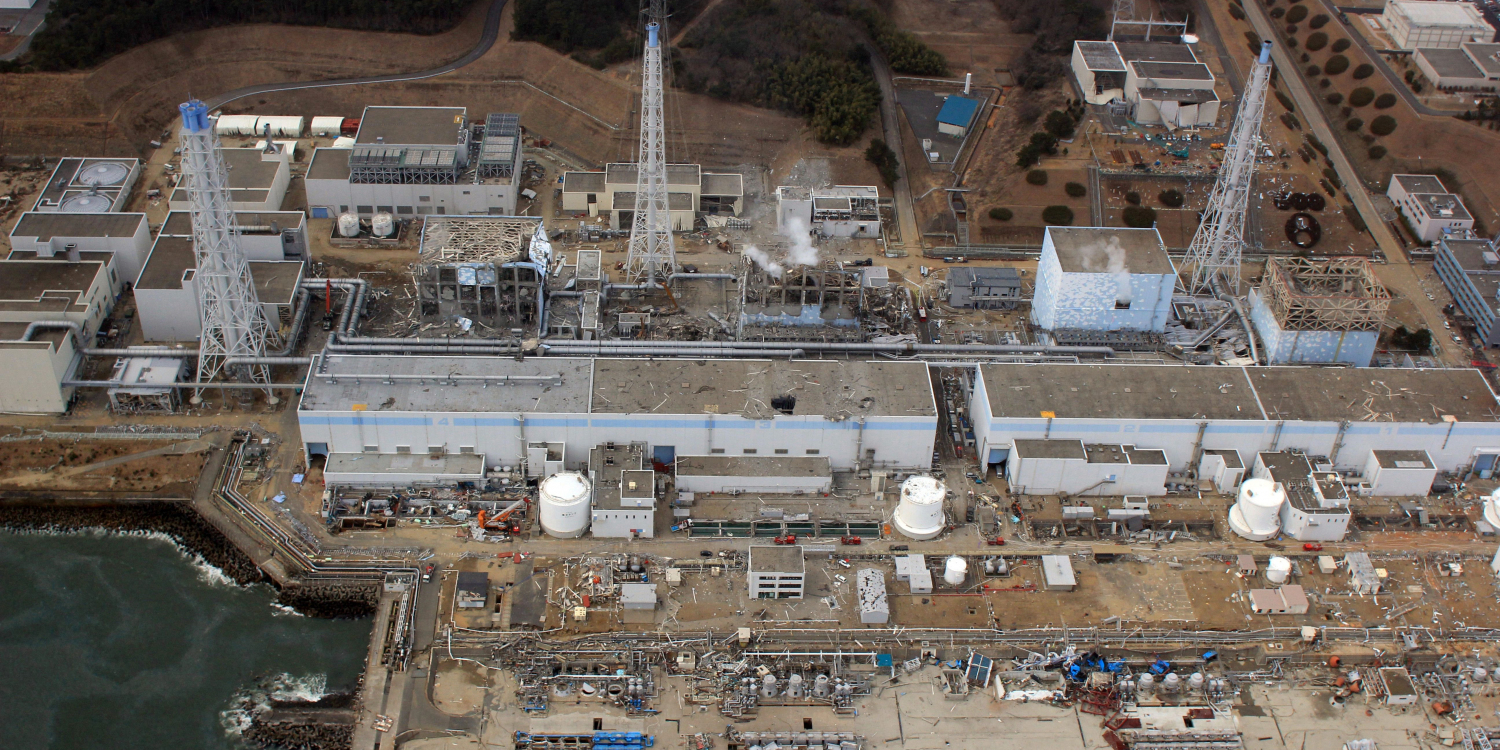Europe 1 with AFP // Photo credit: Handout / AIR PHOTO SERVICE / AFP
The controversial discharge into the sea of water from the damaged nuclear power plant in Fukushima (northeastern Japan) is to begin on Thursday, the Japanese Prime Minister said on Tuesday, immediately triggering restrictions on the import of Japanese foodstuffs by Hong Kong, after China. This project was validated in early July by the International Atomic Energy Agency (IAEA) and Tokyo ensures that it will be safe for the environment and human health. But the operation, which should last for decades, also arouses serious concerns and criticism, especially from China.
Discharges spread out until 2050
Beijing last month banned food imports from ten Japanese departments, including Fukushima, and is carrying out radiation tests on foodstuffs from the rest of the country. And Hong Kong will “immediately” apply restrictions on food from Japan, the territory’s chief executive, John Lee, announced on Tuesday.
Tokyo plans to discharge more than 1.3 million tonnes of water from the Fukushima Daiichi plant into the Pacific Ocean from rainwater, groundwater and injections needed to cool reactor cores that melted after the March 2011 tsunami that devastated the northeast coast of the country. This water was treated beforehand to get rid of its radioactive substances, with the exception, however, of tritium, which could not be removed with existing technologies.
Only highly concentrated doses of tritium are harmful to health, experts say. Also Tepco, the operator of the Fukushima power plant, plans a discharge into the ocean spread out until the beginning of the 2050s, at a rate of 500,000 liters per day maximum, and with a dilution to reduce the level of radioactivity of the tritiated water well below national standards for this category.
Japanese fishermen worried
Japan therefore asserts that this operation poses no threat to the marine environment and human health. The International Atomic Energy Agency (IAEA), which controls the project, agrees and gave the green light in July. The operation will begin Thursday “weather permitting”, according to Japanese Prime Minister Fumio Kishida. IAEA staff are working on site to ensure that the project “remains compliant with safety standards”, and will also make “real-time and near real-time” monitoring data available to the international community, it said. Tuesday the agency in a press release. Tepco and the Japanese Fisheries Agency will also put monitoring data online.
“The Japanese government has opted for a false solution – decades of deliberate radioactive pollution in the marine environment – at a time when the world’s oceans are already under high pressure,” Greenpeace said in a statement on Tuesday. The Japanese fishing industry fears harmful consequences for the image of its products, among Japanese consumers and abroad.
“We are always opposed to the discharge of water” because “scientific security does not necessarily equate to a sense of security in society,” Japanese fishing industry representative Masanobu Sakamoto told the AFP on Monday. from a meeting with Fumio Kishida.
A situation “exploited” by Beijing
Japan will demand an end to Chinese trade restrictions by putting forward “scientific evidence”, assured Fumio Kishida on Tuesday. He also promised measures to support the Japanese fishing industry by encouraging its production and domestic consumption of its products, as well as opening new export markets. A fund of 30 billion yen (190 million euros) is also planned to deal with the risk of a loss of image. China’s fears may be sincere, but its vehement tone is likely also due to geopolitical and economic tensions between Beijing and Tokyo, according to James Brady, an analyst at research firm Teneo.
Beijing can thus “exploit” the Fukushima water problem by trying to “exacerbate” internal divisions in Japan on the subject, exert “certain pressure” on Japanese foreign trade and try to disrupt the recent warming of ties between Tokyo and Seoul, said Mr. Brady, interviewed by AFP. Seoul has not expressed any objection to the Japanese plan, although the South Korean population is also worried.
